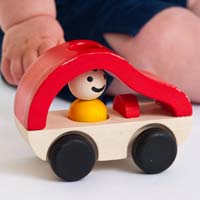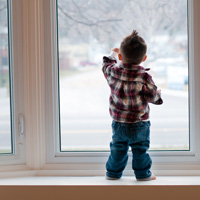Creating the Perfect Sleeper
In This Article

When children aren’t sleeping, parents aren’t sleeping. That lack of sleep affects every minute of every day for every person in the family because lack of sleep isn’t just about being tired. Sleep plays a role in everything from dawdling and temper tantrums to growth, health, and even learning to recite the ABCs.
It’s estimated that 70 percent of children under age five experience some type of sleep issues. The following eight tips can help turn any child into the perfect sleeper. Here’s how to get started:
Maintain a consistent bedtime and waking time
Your child’s biological clock has a strong influence on her wakefulness and sleepiness. When you establish a set time for bedtime and wake up time you “set” your child’s clock so that it functions smoothly.
Aim for an early bedtime. Young children respond best with a bedtime between 6:30 p.m. and 7:30 p.m. Most children will sleep better and longer when they go to bed early.



